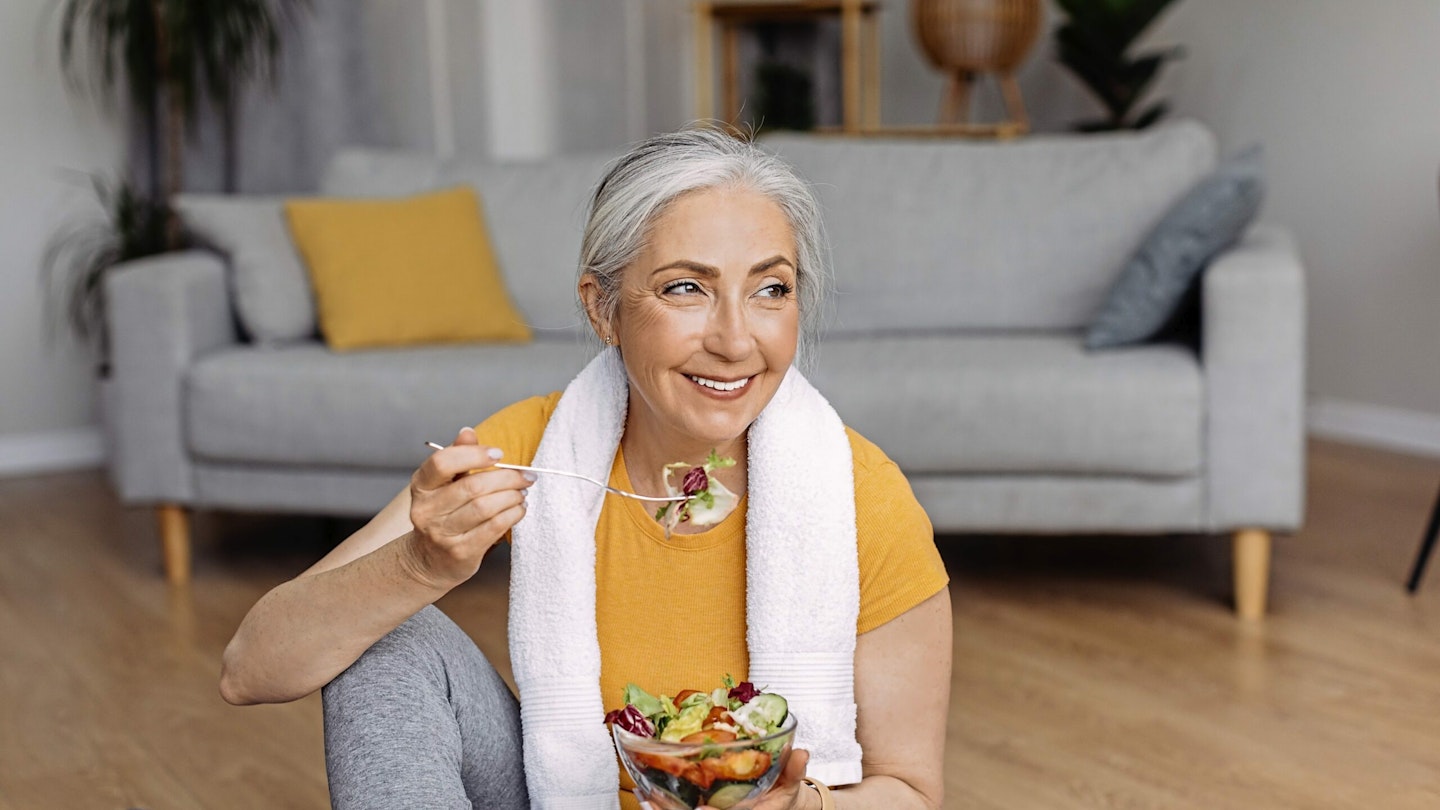Making better food choices now can protect your brain against this debilitating condition
Contrary to the beliefs of many, Alzheimer’s — which accounts for up two thirds of dementia — is not an inevitable consequence of ageing. So says Patrick Holford, Founder of the Food for the Brain Foundation.
He says: ‘Alzheimer’s is not in the genes either. Fewer than one in every 100 Alzheimer’s diagnoses are attributed to genes. It is largely a preventable disease, and we know quite a lot about what people need to do to help prevent it.’
According to Patrick, the key to prevention is nutrition. Here’s how…
Reduce sugar and carbs
‘Sugar is not our friend, but not only because of waistlines and tooth decay. A 2022 US study reported that a blood-sugar level in the high end of the normal range when aged 35 increased a person’s risk of developing Alzheimer’s later in life by 15 per cent.
‘We’re not just talking about cakes and sweets. Sugary junk food, sweetened drinks and white, refined bread, rice and pasta are also on the list of foods it’s wise to limit.
‘We should be having more beans, fish, and chicken. For breakfast, have eggs, yogurt, nuts, seeds and berries, with oats replacing sugary cereals and oatcakes instead of bread.’
Increase omega-3
‘DHA — docosahexaenoic acid — is an important omega-3 fatty acid, and it is found in seafood and certain types of algae. Eating three servings of fish a week cuts Alzheimer’s risk by a third.
‘The best fish are those that swim in cold water and eat other fish — salmon, mackerel, sardines, anchovies, herring and kippers are all excellent.
‘Algal or seaweed-derived DHA is just as good as that found in fish, so this is essential for vegans and vegetarians. You need at least 200mg a day, but ideally double this amount.’
Boost B vitamins
‘B vitamins halve the rate of brain shrinkage in people with pre-dementia, and cut shrinkage in the Alzheimer’s areas of the brain by nine times. The best drug to date has cut brain shrinkage by two per cent.
‘B vitamins help attach omega-3 into your brain. Omega-3 fats don’t work nearly so well without B vitamins, and B vitamins don’t work in people with low intake of omega-3. You need both.
‘The three critical B vitamins — vitamin B6, B12 and folic acid or folate — are found in green foods. We recommend that older people supplement at least 10mcg of vitamin B12 a day, but the study gave 500mcg. This is because many older people absorb B12 less well. It needs stomach acid, so those on antacid drugs often end up lacking B12.’
Fill up with fruit and veg
‘Brain-friendly antioxidants and polyphenols, which improve circulation in your brain and help keep it young, are found in fruits, veg, herbs and spices.
‘Having a handful of berries a day — blueberries being the best — and at least four servings of vegetables is a good starting place.
‘Spices such as turmeric, cumin and chilli, cayenne or paprika are all great sources of polyphenols.’
Be active and healthy
‘As well as being physically active, it’s important to exercise your brain. Workouts for your brain and body are linked.
‘Exercise, especially resistance exercise, makes the brain do things that keep it healthy, such as growth and repair.
‘We also benefit from purely mental exercise — activities such as solving puzzles or learning a musical instrument or a new language. It’s especially good to attempt to master something you are bad at.’
